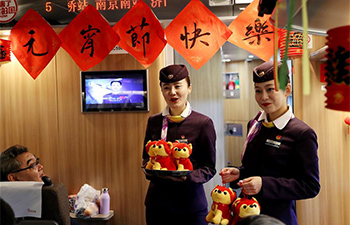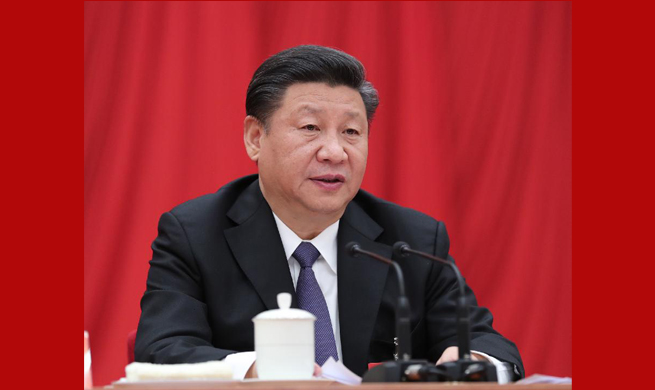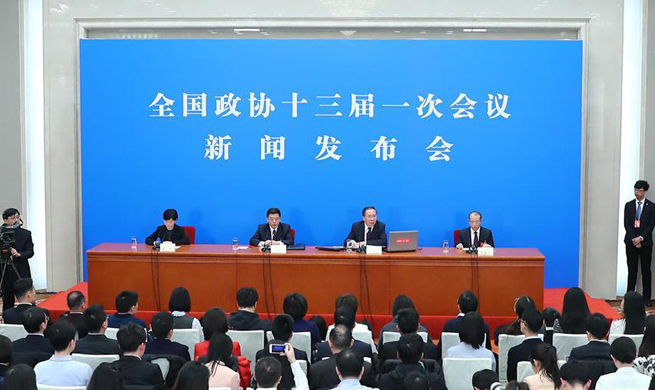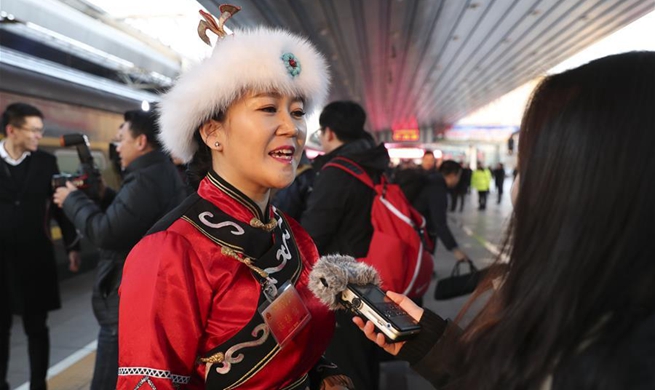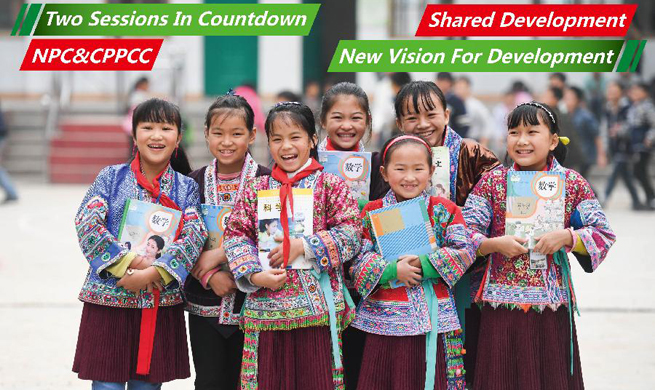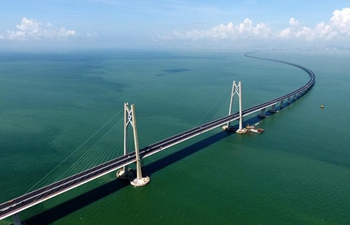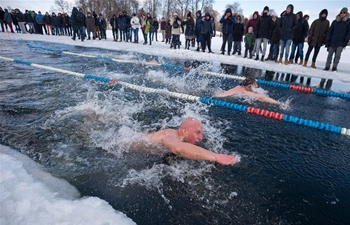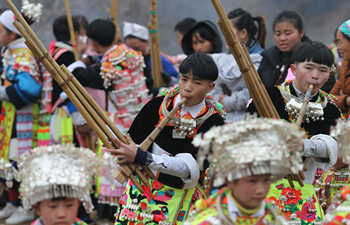ANKARA, March 2 (Xinhua) -- Turkish ruling Justice and Development Party (AKP) is preparing to amend critical laws in order to guarantee its victory in the next elections, which could be brought forward amid rising nationalist enthusiasm for the military campaign in Syria.
The essential aim of this move is to secure a nationalist pact between the AKP and the main nationalist party, the Nationalist Movement Party (MHP), whose leader has strongly supported Turkish President Recep Tayyip Erdogan since a failed military coup in July 2016.
The AKP, headed by Erdogan, has drawn up a proposal enabling a "people's alliance" with the MHP, which is impossible under the actual electoral law.
The changes have yet to be approved by parliament where the AKP has a comfortable majority. They allow MHP leader Devlet Bahceli to escape the possibility of falling below Turkey's 10 percent electoral threshold to be represented at parliament because the alliance's combined votes would determine whether individual parties will enter parliament.
ELECTIONS PLANNED IN 2019
Parliamentary and presidential elections are planned to be held together in November 2019. The presidential race is crucial because it will abolish the Prime Minister's office and hand out executive powers to the head of state in line with a constitutional referendum held in April 2017.
AKP's influential lawmaker Mustafa Sentop said the amendments would be steps toward further democratization of Turkish politics, which will officially transit from a parliamentary system to a presidential one.
But main opposition People's Republican Party (CHP) lawmaker Ozgur Ozel expressed concern that the government and MHP are trying to bend the electoral laws for their own political interests.
According to a recent survey conducted by polling company Gezici, AKP leads with 42 percent among potential voters, CHP (center-left), 20 percent, IYI Party (center-right), 20 percent, MHP, 7.3 percent, and pro-Kurdish Peoples' Democratic Party (HDP), 8.7 percent.
"The changes aim essentially at ensuring that Erdogan gets elected in the first round" of the presidential election without a humiliating second round, political commentator Serkan Demirtas told Xinhua.
Erdogan's main rival in the election is expected to be Meral Aksener, leader of the recently formed IYI Party. She is a former interior minister who broke away last year from MHP.
Demirtas expressed concern about the proposed changes, arguing that small parties would unfairly benefit from the new system, thus "violating the constitutional principle of equality."
However, an AKP official rejected the charges. He told Xinhua that, on the contrary, this is to ensure equity, giving also a chance to smaller parties to be represented in parliament and be part of the People's alliance.
Demirtas is also worried that the election security could be affected by the proposed changes as new voter safety regulations would make ballots admissible even when they lack the official stamp of the High Electoral Board (YSK).
The YSK made a last-minute decision during the 2017 referendum to allow the counting of unstamped ballots, causing a major controversy amid suspicions of fraud.
POSSIBILITY OF HOLDING EARLIER ELECTIONS
Observers hint that the nationalistic fervor caused by Turkey's military operation launched in late January in northern Syria's Afrin region, could eventually bring forward the date of the 2019 elections to 2018.
Publicly, the government and Erdogan have insisted that the election date was not going to be changed. But the amendments to the election law hints otherwise amid a slowing economy, a sector which is at the core of successive electoral victories of the AKP since it first came to power in 2002.
On Thursday, asked by reporters about the speculations and rumors, government spokesman Bekir Bozdag ruled out snap polls, insisting that elections "will be held on time in 2019."
The International Monetary Fund (IMF) said, however, in a report that the Turkish economy is showing signs of overheating with a positive output gap, an inflation well about target and a wider current account deficit, making it vulnerable to shocks.
Abdulkadir Selvi, a journalist with good sources in AKP, suggested in a television interview that the Afrin offensive which enjoys widespread public support in Turkey has increased sensibly AKP's votes, fueling further speculation on the possibility of early polls.
While the nationalist alliance is gearing up, opposition parties have until now failed to show any clear sign of a political rapprochement or pact between each other amid a persistent division, branded as being "desperate" and even "pathetic" by the pro-government media.
"With the opposition so weak and disparate, Erdogan doesn't in fact have to call for early elections," wrote Asli Aydintasbas in Cumhuriyet daily, echoing the frustration amongst CHP supporters.
"There was a momentum last year during the referendum and the Justice March, but now it seems that this has dissipated and the Afrin operation has taken its place," said Mehmet Ozcelik, an engineer from the Cankaya conscription of the capital Ankara, the so-called "ballot depot" of CHP where the movement is traditionally strong.
He was referring to the 450-km march which made headlines in June 2017 led by CHP leader Kemal Kilicdaroglu to protest against a massive government crackdown launched after the failed coup.
The Afrin operation has led to a rising tide of nationalism in Turkey, which the AKP would want to take advantage in early polls, wrote Murat Yetkin in the Hurriyet Daily News.
Earlier elections or not, there is no doubt that Erdogan's approval ratings are rising.







